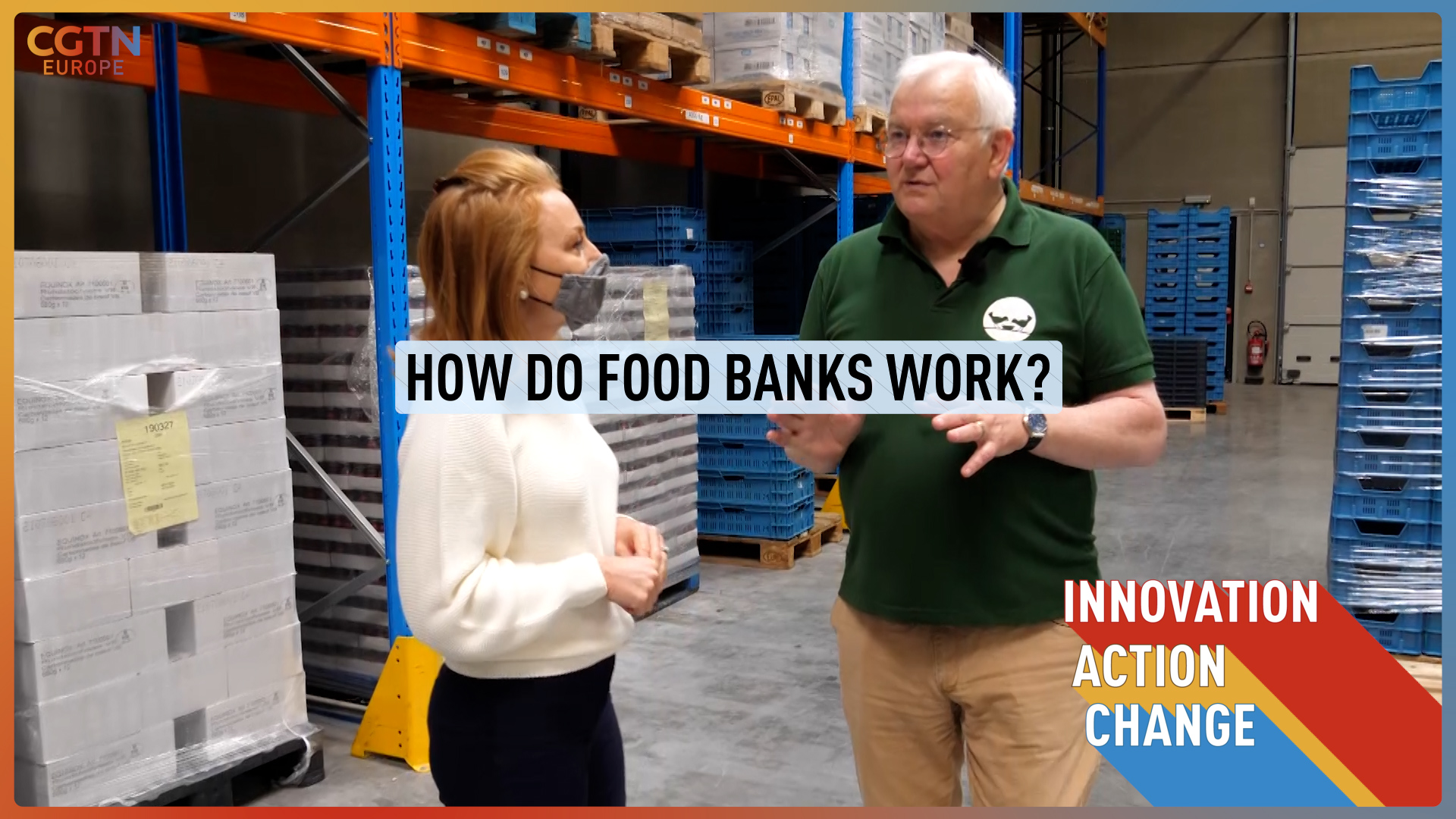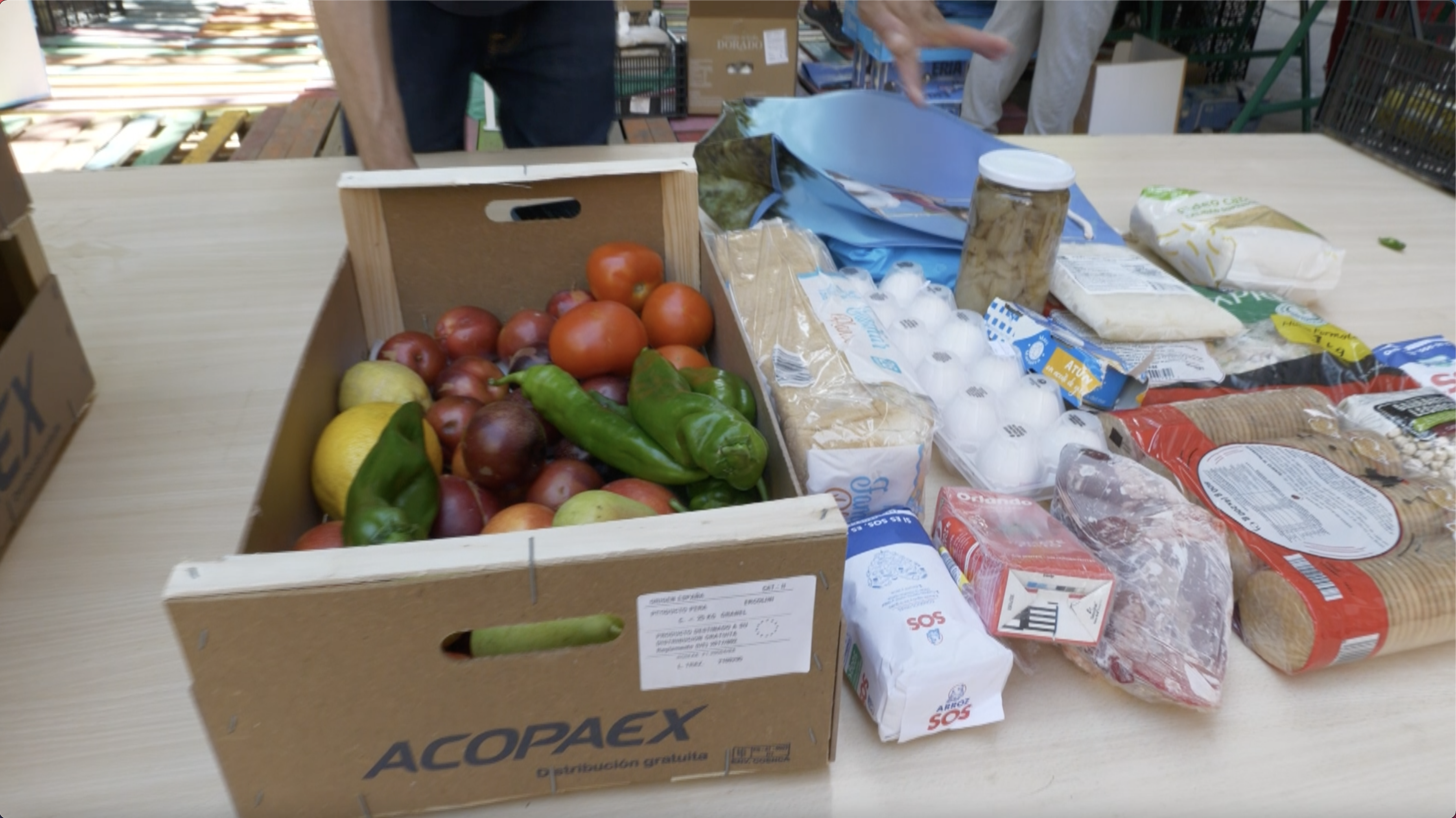04:58

CGTN's Toni Waterman visited a warehouse in Belgium that collects 8,000 tons of produce a year. Some of the food is "shock frozen" to extend its shelf life, but anything deemed unfit to eat still is destroyed under the organization's "no compromise" approach to safety.
Before the pandemic, up to 15 percent of Europeans had used food banks to supplement their meals.
That situation has been aggravated by the widening inequalities that have been the byproduct of the disruption following months of lockdowns and the ravages of COVID-19.
Food banks often work according to a two-step process. A central warehouse will collect donations from companies looking to contribute or simply hand off consumables which they are unable to sell. Then these will be passed onto local charities for distribution.
READ MORE
Any face mask is better than none
Being the world's tallest woman
China and UK preserve plant diversity
In Madrid, Rahul Pathak looked at the other end of the food bank network, exploring how volunteers try to balance available products with the needs of the people they serve.
01:11


